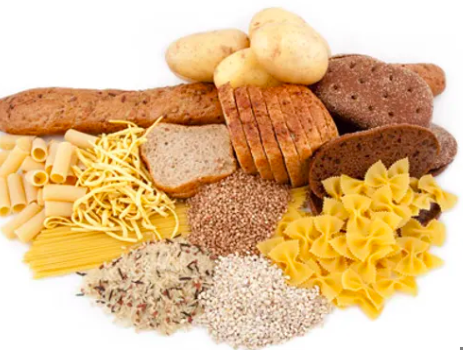If you are eating healthy and working out but not losing weight, you have to research why this is happening! Your body fights back when you try to lose weight, so changing your weight loss routine could help.
here are 12 reasons why you might not be losing weight as quickly as you thought you would:
1. Sneaky Snacking: You know those little nibbles here and there? Yeah, they add up! That handful of chips or that extra cookie can really sabotage your weight loss efforts without you even realizing it. Time to keep an eye on those sneaky snacks!
2. Liquid Calories: It's not just about what you eat, but what you drink too. Those sugary sodas, fancy coffees, and fruity cocktails can pack a serious calorie punch. Swap 'em out for some good ol' water or unsweetened beverages to save those precious calories.
3. Lack of Consistency: Losing weight is like a long-term relationship; it requires commitment and consistency. If you're only sticking to your healthy eating plan and exercise routine sporadically, it's gonna be tough to see the results you want. Stay consistent, my friend!
4. Plateau Party: Sometimes our bodies get used to the same old routine, and weight loss slows down or even stops. It's like hitting a plateau. Shake things up by trying new exercises, adjusting your calorie intake, or seeking advice from a professional to kickstart that weight loss again.
5. Stress Mess: Stress can be a real buzzkill when it comes to losing weight. It messes with our hormones, increases cravings, and can lead to emotional eating. Find healthy ways to manage stress, like exercise, meditation, or indulging in a hobby that brings you joy.
6. Lack of Sleep: Who needs sleep, right? Well, turns out, your body does! Skimping on those Zzz's messes with your metabolism, increases hunger hormones, and makes it harder to resist those late-night snack attacks. Prioritize sleep to give your weight loss journey a boost.
7. Mindless Munching: Ever find yourself eating while watching TV or scrolling through your phone? Yeah, we've all been there. But mindless munching can lead to overeating without even realizing it. Pay attention to what and how much you're eating, and try to savor each bite.
8. Unrealistic Expectations: Rome wasn't built in a day, and neither is weight loss. Having unrealistic expectations can set you up for disappointment. Remember, slow and steady wins the race. Celebrate every small victory along the way, and be patient with yourself.
9. Lack of Muscle Love: Cardio is great, but don't forget about strength training! Building muscle not only helps you burn more calories at rest, but it also gives you that toned and sculpted look. So, grab those dumbbells and show your muscles some love.
10. Underestimating Calories: It's easy to underestimate the number of calories we consume. That innocent-looking salad dressing or that extra drizzle of oil can add up quickly. Keep track of what you eat, read labels, and be mindful of portion sizes to avoid any calorie surprises.
11. Not drinking enough water: Water is essential for weight loss. It keeps you hydrated, helps with digestion, and can even curb your appetite. So, make sure you're sipping on that H2O throughout the day.
12.Not enough protein: Protein is your friend when it comes to weight loss. It keeps you feeling full and helps build muscle. Make sure you're getting enough of it in your diet.
Remember, losing weight is a journey, and it's important to be kind to yourself along the way. Keep these reasons in mind, make adjustments where needed, and stay committed to your goals. You got this!
7 Ways To Help You Start Your Weight Loss Journey:
1. What is the most effective way to lose weight?
The most effective way to lose weight is through a combination of a healthy, balanced diet and regular physical activity. It is important to create a calorie deficit by consuming fewer calories than you burn, which can be achieved by incorporating portion control, choosing nutrient-dense foods, and reducing the intake of processed and sugary foods. Regular exercise, such as cardiovascular activities and strength training, helps to increase calorie expenditure and build lean muscle mass, contributing to weight loss.
2. How much weight can I expect to lose in a week?
The amount of weight loss varies from person to person and depends on various factors, including current weight, body composition, metabolism, and overall health. A safe and sustainable rate of weight loss is generally considered to be 1-2 pounds per week. Rapid weight loss can often be associated with muscle loss and may not be sustainable in the long term. It is important to focus on gradual, steady progress for lasting results.
3. Are there any specific diets that are more effective for weight loss?
There is no one-size-fits-all diet that guarantees weight loss. However, some popular and evidence-based approaches include the Mediterranean diet, low-carbohydrate diets, and intermittent fasting. These diets emphasize whole, unprocessed foods, adequate protein intake, and portion control. It is essential to choose a diet that suits your lifestyle, preferences, and nutritional needs, and to consult with a healthcare professional or registered dietitian for personalized guidance.
4. Can I spot-reduce fat in specific areas of my body?
Spot-reducing fat in specific areas of the body is a common misconception. Unfortunately, it is not possible to target fat loss in specific areas through exercise or diet alone. When you lose weight, your body will naturally shed fat from various areas, influenced by genetic factors and individual body composition. Incorporating strength training exercises can help build muscle in specific areas, which may enhance the overall appearance of those areas as you lose weight.
5. Is it necessary to count calories for weight loss?
Counting calories can be a helpful tool for weight loss, as it provides a way to monitor and control your daily energy intake. However, it is not the only approach. Focusing on the quality of your diet, such as choosing whole, nutrient-dense foods, can also contribute to weight loss without the need for strict calorie counting. Ultimately, finding a balance that works for you and promotes a sustainable, healthy relationship with food is key.
6. How important is exercise for weight loss?
Exercise plays a crucial role in weight loss by increasing calorie expenditure, improving metabolism, and promoting overall health and well-being. While it is possible to lose weight through dietary changes alone, incorporating regular physical activity can enhance the weight loss process, improve body composition, and help maintain long-term weight management. Aim for a combination of cardiovascular exercises, strength training, and flexibility exercises for optimal results.
7. How can I stay motivated during my weight loss journey?
Staying motivated during a weight loss journey can be challenging, but there are several strategies that can help. Setting realistic and achievable goals, tracking progress, celebrating milestones, and finding a support system can all contribute to motivation. Additionally, focusing on non-scale victories, such as increased energy levels, improved sleep, and enhanced mood, can provide positive reinforcement. It is important to remember that weight loss is a gradual process, and maintaining a positive mindset and patience are key to long-term success.
The bottom line
Remember, losing weight is a journey, and it's important to be kind to yourself along the way. Keep these reasons in mind, make adjustments where needed, and stay committed to your goals. You got this!



